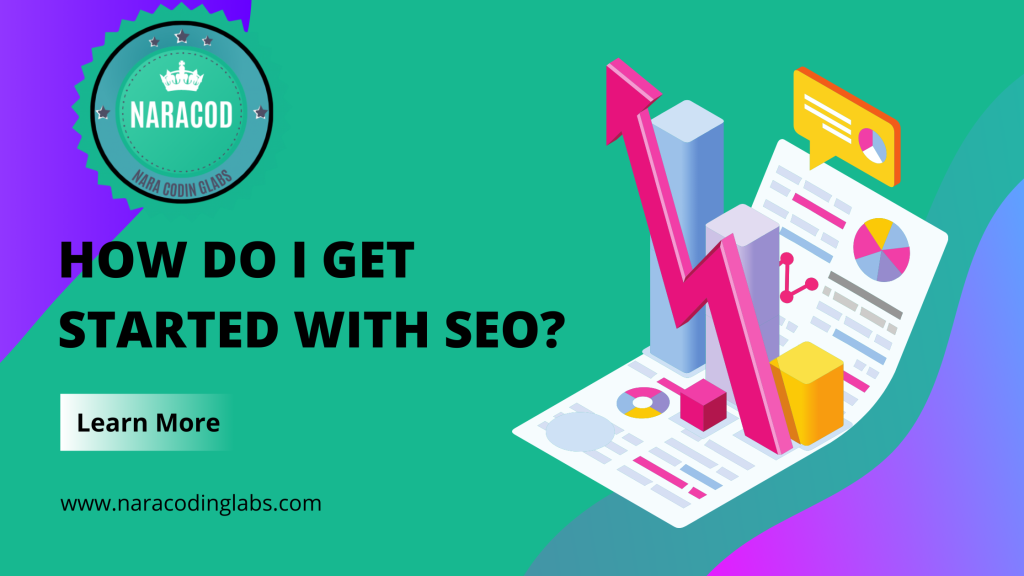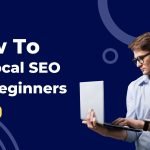Search Engine Optimization (SEO) is a crucial aspect of digital marketing that can significantly impact the visibility and success of a website. In today’s highly competitive online landscape, understanding and implementing effective SEO strategies is essential for any business or individual looking to improve their online presence and attract organic traffic. If you’re new to SEO and wondering how to get started, this comprehensive guide will provide you with the necessary information and steps to kickstart your SEO journey.
Understanding SEO

To begin your SEO journey, it’s essential to have a solid understanding of what SEO is and how it works. SEO refers to the process of optimizing a website to improve its visibility and ranking on search engine result pages (SERPs). The primary goal of SEO is to attract organic, high-quality traffic to a website by utilizing various techniques and strategies that align with search engine guidelines.
Search engines, like Google, use complex algorithms to rank websites based on various factors, including relevance, authority, and user experience. SEO involves optimizing these elements to increase a website’s chances of appearing higher on SERPs, ultimately driving more organic traffic.
How Can I Start SEO As A Beginner?
SEO can be a difficult process to understand and can often seem mysterious to newcomers. However, with a little bit of knowledge and some simple steps, you can be on your way to improving your website’s search engine ranking.

The first step is to understand how search engines work. Search engines use algorithms to rank websites based on how relevant they are to the user’s search. In order to improve your website’s ranking, you need to make sure your website is as relevant as possible to your target audience.
There are a number of ways to do this. One of the most important is to make sure your website’s content is high quality and up to date. You should also ensure that your website is properly optimised for search engines. This includes using the correct keywords and phrases, as well as ensuring that your website is easy to navigate.
Can I Do SEO On My Own?
There is a lot of misconception about what SEO is and how it works. People often think that they can do SEO on their own, and while this is possible to some extent, it’s not recommended. SEO is a complex and ever-changing field, and if you’re not familiar with the latest trends and best practices, you’re likely to make mistakes that will hurt your website’s ranking and visibility.
That’s why it’s always best to hire an experienced SEO professional to help you with your SEO efforts. They will have the knowledge and expertise to help you achieve the best results possible. They will also keep up with the latest trends and changes in the SEO landscape, so you can be confident that your website is always optimized for the latest search engine algorithms.
How Do Beginners Learn SEO For Free?
There is no question that effective SEO (search engine optimization) practices can help websites rank higher in search engine results pages, leading to more visitors and more revenue. However, for beginners, learning how to implement these practices can be a challenge, one way to learn SEO is to attend an SEO training course. However, these courses can be expensive and time-consuming. Another option is to read SEO guides and tutorials. However, these can also be time-consuming and can often require a certain level of technical expertise.
A third option is to use free SEO tools and resources. While these resources may not be as comprehensive as paid courses or tutorials, they can still be a valuable way for beginners to learn the basics of SEO. Some of the best free SEO tools and resources include Google’s Webmaster Tools, Google Analytics, Moz’s Open Site Explorer, and Yoast’s SEO for WordPress. These tools can help beginners learn about website optimization, while also providing more experienced SEO professionals with insights and data to help them improve their website’s search engine ranking.
Google’s Webmaster Tools is a free service that provides website owners with information about their website’s visibility on Google search results pages, as well as insights on how to improve their website’s search engine ranking. The tool also provides owners with data on website traffic, search queries, and website errors.
Google Analytics is another free tool that provides website owners with information on their website’s traffic, including where their visitors are coming from, what pages they are visiting, and how long they are staying on each page. The tool also provides insights on website conversions and how to improve them.
Can I Learn SEO Without Coding?
Short answer: Yes, you can learn SEO without coding, Long answer: SEO is a field that is constantly evolving, and there are a number of different ways to approach it. While coding may be helpful for some aspects of SEO, it is not necessary to be a coder in order to understand and implement effective SEO techniques.
There are a number of online resources that can help you learn about SEO without coding. These resources can teach you about the basics of SEO, as well as more advanced techniques. Additionally, there are a number of online communities and forums where you can ask questions and get advice from SEO professionals.
If you are interested in learning more about SEO, but are not comfortable with coding, there are a number of resources available to you. Start by exploring the different techniques that can help you improve your website’s ranking, and then ask questions and get advice from experienced SEO professionals.
Research and Keyword Analysis
Keyword research is a fundamental step in any SEO strategy. Begin by identifying the keywords or phrases your target audience is likely to use when searching for products, services, or information related to your website. Several tools, such as Google Keyword Planner, SEMrush, and Ahrefs, can assist you in finding relevant keywords and estimating their search volumes.
Consider long-tail keywords (more specific, longer phrases) that have lower competition but higher intent. These keywords often yield better results for smaller businesses or those starting their SEO journey.
On-Page Optimization

On-page optimization involves optimizing various elements on your website to improve its visibility to search engines. Some key on-page optimization steps include:
- a. Title Tags and Meta Descriptions: Craft unique, concise, and keyword-rich title tags (HTML tags that define the title of a webpage) and meta descriptions (brief summaries that appear on SERPs) for each page on your website. These elements play a crucial role in attracting users to click on your website.
- b. URL Structure: Ensure your website’s URLs are descriptive, concise, and include relevant keywords. Avoid using long, complex URLs that are difficult for both users and search engines to understand.
- c. Header Tags: Use header tags (H1, H2, H3, etc.) to structure your content and make it easier for search engines to understand the hierarchy and relevance of your information.
- d. Content Optimization: Create high-quality, engaging, and relevant content that incorporates your target keywords naturally. Ensure your content provides value to your audience and is easily readable and digestible.
- e. Image Optimization: Optimize your images by using descriptive filenames and alt tags (alternative text that describes an image for users who cannot view it). Compressing images without losing quality also improves website load times, positively impacting SEO.
- f. Internal Linking: Include internal links within your website to guide users and search engines to relevant pages. This helps search engines understand the structure and hierarchy of your website.
Technical SEO

Technical SEO involves optimizing various technical aspects of a website to enhance its performance and accessibility. Some key technical SEO considerations include:
- a. Website Speed: Optimize your website’s loading speed to improve user experience and search engine rankings. Remove unnecessary scripts, reduce file sizes, enable browser caching, and utilize content delivery networks (CDNs) to enhance page load times.
- b. Mobile Optimization: Ensure your website is mobile-friendly and responsive. With the increasing number of users accessing the internet on mobile devices, search engines prioritize mobile-friendly websites in their rankings.
- c. XML Sitemap: Create and submit an XML sitemap to search engines. This file assists search engines in crawling and indexing your website more efficiently.
- d. Robots.txt: Create a robots.txt file to instruct search engine crawlers on which pages of your website to crawl and index and which ones to exclude.
- e. Structured Data Markup: Implement structured data markup (Schema.org) to provide additional context and information about your website’s content to search engines. This markup can enhance your website’s visibility in rich snippets, knowledge panels, and other search engine features.
5. Off-Page Optimization

Off-page optimization involves actions taken outside your website to improve its visibility and authority. The most crucial off-page optimization aspect is link building. Here are some effective strategies for building high-quality backlinks:
- a. Content Creation and Promotion: Create valuable and shareable content that attracts links naturally. Promote your content through social media, email outreach, and guest blogging to increase its visibility and chances of attracting backlinks from authoritative websites.
- b. Influencer Outreach: Build relationships with influencers and authoritative figures in your industry. Collaborate on content creation, guest posting, or interviews to gain exposure and earn valuable backlinks.
- c. Social Bookmarking and Social Signals: Share your content on social bookmarking websites and encourage social sharing to generate social signals. While social signals do not directly impact search engine rankings, they can indirectly influence visibility and traffic.
- d. Guest Blogging: Write high-quality guest posts for reputable websites and include links back to your website. Guest blogging helps establish your authority, gain exposure, and attract backlinks.
- e. Monitor and Disavow Toxic Backlinks: Regularly monitor your website’s backlink profile and disavow any toxic or low-quality links that may harm your website’s rankings.
Monitoring and Analytics
SEO is an ongoing process, and monitoring your efforts is crucial. Utilize tools like Google Analytics and Google Search Console to track your website’s performance, identify areas for improvement, and measure the impact of your SEO strategies. Monitor important metrics such as organic traffic, keyword rankings, bounce rates, and conversions to gauge the effectiveness of your SEO efforts.
Stay Updated and Adapt
SEO is constantly evolving, and search engine algorithms frequently change. Stay updated with industry trends, algorithm updates, and best practices to ensure your SEO strategies remain effective. Subscribe to reputable SEO blogs, attend industry conferences, and participate in relevant communities to stay ahead of the curve.
Conclusion
Getting started with SEO requires a solid understanding of its fundamental principles and a strategic approach. By conducting thorough keyword research, optimizing on-page and technical aspects, building high-quality backlinks, and regularly monitoring your progress, you can establish a strong foundation for your SEO journey. Remember, SEO is an ongoing process, so stay committed, adapt to changes, and consistently refine your strategies to achieve long-term success in the competitive digital landscape.






